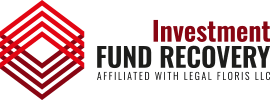Corporate Fraud
Corporate fraud is a term that encompasses a wide range of illegal and deceptive actions committed either by a company or by an individual acting as an employee of the company. This complex issue affects not only businesses but also investors, regulators, and the public at large. This article will delve into the intricacies of corporate fraud, discuss its various forms, and provide guidance on how to prevent and detect such malpractices.
Corporate fraud often involves highly complicated accounting schemes designed to artificially inflate a company’s apparent profits. Such schemes can take years to detect, and by the time they are discovered, they may have caused significant damage to the company, its shareholders, and the broader economy.
Corporate fraud can be broadly categorized into two types: internal and external. Internal fraud is committed by an employee or group of employees within the organization, while external fraud is perpetrated by individuals or entities outside the company. Both types of fraud can have far-reaching consequences, and it is essential for businesses to take proactive measures to prevent and detect such activities.
Forms of Corporate Fraud
Financial statement fraud: This type of fraud involves the intentional manipulation of a company’s financial statements to create a false impression of its financial health. This can be achieved by overstating revenues, understating expenses, or inflating assets. Financial statement fraud can have severe repercussions, including significant losses for investors and damage to a company’s reputation.
Asset misappropriation: Asset misappropriation occurs when employees steal or misuse company assets for personal gain. This can include embezzlement, skimming, payroll fraud, and theft of inventory or other physical assets.
Bribery and corruption: Bribery involves offering, giving, receiving, or soliciting something of value to influence the actions of another party. Corruption, on the other hand, refers to the abuse of entrusted power for personal gain. Both bribery and corruption can result in severe legal and financial penalties for the involved parties.
Insider trading: Insider trading is the illegal buying or selling of securities based on non-public information. This practice undermines the integrity of financial markets and can lead to substantial fines and imprisonment.
Tax evasion: Tax evasion involves the deliberate underreporting or misreporting of income, expenses, or other financial information to reduce tax liability. This type of fraud can result in substantial financial penalties and, in some cases, criminal charges.
Preventing Corporate Fraud
Implement strong internal controls: Effective internal controls are crucial for preventing corporate fraud. These controls should include segregation of duties, regular audits, and clearly defined policies and procedures.
Encourage a culture of integrity and ethics: Companies should strive to create an organizational culture that emphasizes the importance of ethical behavior and compliance with laws and regulations.
Provide employee training: Regular training on fraud prevention and detection, as well as company policies and procedures, can help employees recognize and report potential fraud.
Establish a whistleblower program: A well-designed whistleblower program can encourage employees to report suspected fraud without fear of retaliation.
Perform due diligence: Companies should conduct thorough background checks on potential employees, business partners, and vendors to minimize the risk of fraud.
Monitor financial statements: Regular review of financial statements can help identify any irregularities or discrepancies that may indicate fraud.
Implement data analytics: Data analytics can be an invaluable tool for detecting patterns and trends that may indicate fraudulent activity.
Conduct internal audits: Regular internal audits can help identify weaknesses in internal controls and potential instances of fraud.
